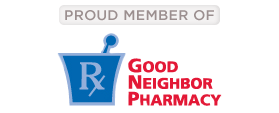Introduction
This surge in popularity has led to a corresponding increase in online gambling advertising, with companies vying for attention and customers in an increasingly crowded market. However, as the industry continues to expand, concerns have been raised about the ethics of online gambling advertising, particularly with regards to its impact on vulnerable individuals and its potential to promote problematic gambling behaviors. In this article, we will explore the ethics of online gambling advertising, including the use of affiliate marketing and the promotion of online casinos such as Pornhub Casino Online, and examine the measures that can be taken to ensure that this type of advertising is conducted in a responsible and ethical manner.
The Rise of Online Gambling Advertising
The rise of online gambling advertising has been fueled by the growing popularity of online gambling itself. As more and more people have turned to the internet to place bets and play games of chance, companies have sought to capitalize on this trend by investing heavily in advertising and marketing efforts. This has led to a proliferation of online gambling ads, with companies using a range of tactics to reach potential customers, including social media advertising, sponsored content, and affiliate marketing. For example, some online casinos, such as Pornhub Casino Online, have partnered with popular adult websites to reach a wider audience and attract new customers. However, as the industry continues to grow, concerns have been raised about the potential impact of online gambling advertising on vulnerable individuals, such as children and problem gamblers.
Concerns About Online Gambling Advertising
One of the main concerns about online gambling advertising is its potential to promote problematic gambling behaviors. Research has shown that exposure to gambling ads can increase the likelihood of problem gambling, particularly among vulnerable individuals such as children and young people. Additionally, online gambling advertising often uses tactics such as free bets and bonuses to lure in new customers, which can be particularly appealing to problem gamblers. Furthermore, the use of affiliate marketing, where websites and social media influencers are paid to promote online casinos, has raised concerns about the potential for biased or misleading advertising.
The Ethics of Affiliate Marketing
Affiliate marketing is a key component of online gambling advertising, with many websites and social media influencers promoting online casinos in exchange for a commission. However, this type of marketing has raised concerns about the potential for biased or misleading advertising. For example, affiliates may be incentivized to promote online casinos that offer the highest commissions, rather than those that offer the best value or most responsible gaming practices. Additionally, affiliates may use tactics such as fake reviews or misleading testimonials to promote online casinos, which can be particularly damaging to vulnerable individuals.
Regulating Online Gambling Advertising
In response to concerns about the ethics of online gambling advertising, regulators have begun to take steps to regulate the industry. For example, the UK Gambling Commission has introduced rules requiring online casinos to clearly label their ads as gambling-related, and to include warnings about the risks of problem gambling. Additionally, the commission has introduced rules requiring affiliates to clearly disclose their relationship with online casinos, and to ensure that their marketing materials are accurate and not misleading. However, more needs to be done to ensure that online gambling advertising is conducted in a responsible and ethical manner, particularly with regards to the protection of vulnerable individuals.
Protecting Vulnerable Individuals
One of the key challenges facing regulators and online gambling companies is protecting vulnerable individuals from the potential harms of online gambling advertising. This includes children and young people, who may be particularly susceptible to the allure of online gambling, as well as problem gamblers, who may be triggered by exposure to gambling ads. To address this challenge, regulators and online gambling companies must work together to develop and implement effective safeguards, such as age verification measures and responsible gaming tools. Additionally, online gambling companies must ensure that their advertising is responsible and ethical, and does not target or exploit vulnerable individuals.
Responsible Gaming Practices
Responsible gaming practices are essential for protecting vulnerable individuals and promoting a safe and healthy online gambling environment. This includes measures such as deposit limits, self-exclusion schemes, and reality checks, which can help to prevent problem gambling and promote responsible gaming behaviors. Online gambling companies must also ensure that their advertising is responsible and ethical, and does not promote excessive or problematic gambling behaviors. Furthermore, online gambling companies must provide clear and accurate information about their games and services, including the risks and odds of winning, to help customers make informed decisions about their gaming activities.</p
Conclusion
In conclusion, the ethics of online gambling advertising are complex and multifaceted, and require careful consideration and regulation to ensure that the industry is conducted in a responsible and ethical manner. While online gambling advertising can be a powerful tool for reaching new customers and promoting online casinos such as Pornhub Casino Online, it also poses significant risks to vulnerable individuals, such as children and problem gamblers. To address these risks, regulators and online gambling companies must work together to develop and implement effective safeguards, such as age verification measures and responsible gaming tools. Additionally, online gambling companies must ensure that their advertising is responsible and ethical, and promotes a safe and healthy online gambling environment. By prioritizing responsible gaming practices and protecting vulnerable individuals, the online gambling industry can promote a positive and enjoyable gaming experience for all customers.




